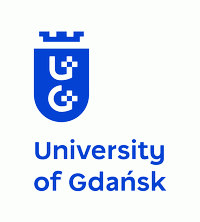Computer
A computer is a device that can be instructed to carry out sequences of arithmetic or logical operations automatically via computer programming. Modern computers have the ability to follow generalized sets of operations, called programs. These programs enable computers to perform an extremely wide range of tasks.
Computer Science
Computer science is the study of the theory, experimentation, and engineering that form the basis for the design and use of computers. It is the scientific and practical approach to computation and its applications and the systematic study of the feasibility, structure, expression, and mechanization of the methodical procedures (or algorithms) that underlie the acquisition, representation, processing, storage, communication of, and access to, information. An alternate, more succinct definition of computer science is the study of automating algorithmic processes that scale. A computer scientist specializes in the theory of computation and the design of computational systems. See glossary of computer science.
Mathematics
Mathematics (from Greek μάθημα máthēma, "knowledge, study, learning") is the study of such topics as quantity, structure, space, and change. It has no generally accepted definition.
Physics
Physics (from Ancient Greek: φυσική (ἐπιστήμη), translit. physikḗ (epistḗmē), lit. 'knowledge of nature', from φύσις phýsis "nature") is the natural science that studies matter and its motion and behavior through space and time and that studies the related entities of energy and force. Physics is one of the most fundamental scientific disciplines, and its main goal is to understand how the universe behaves.
Science
Science (from Latin scientia, meaning "knowledge") is a systematic enterprise that builds and organizes knowledge in the form of testable explanations and predictions about the universe.
Physics
The supreme task of the physicist is the discovery of the most general elementary laws from which the world-picture can be deduced logically. But there is no logical way to the discovery of these elemental laws. There is only the way of intuition, which is helped by a feeling for the order lying behind the appearance, and this Einfühlung [literally, empathy or 'feeling one's way in'] is developed by experience.
Albert Einstein, Preface to Max Planck's Where is Science Going? (1933)
Computer Science
Software engineering is the part of computer science which is too difficult for the computer scientist.
Friedrich Bauer, "Software Engineering." Information Processing: Proceedings of the IFIP Congress 1971, Ljubljana, Yugoslavia, August 23-28, 1971.
Physics
Theoretical physicists live in a classical world, looking out into a quantum-mechanical world. The latter we describe only subjectively, in terms of procedures and results in our classical domain.
John Stewart Bell "Introduction to the hidden-variable question" (1971), included in Speakable and Unspeakable in Quantum Mechanics (1987), p. 29
